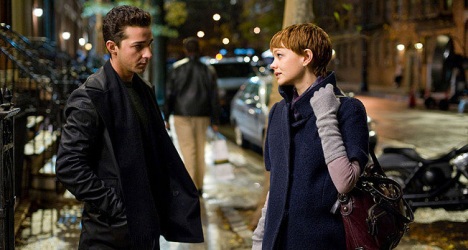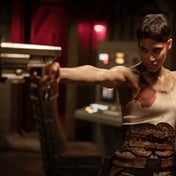
What it's about:
The sequel to Oliver Stone's 1987 zeitgeist-defining, corporate drama switches its focus to the recent credit crunch and ensuing recession as another young broker, Jake Moore (Shia LeBeouf), finds himself involved with the reformed villain of the first film – and estranged father to his soon-to-be-bride – Gordon Gekko (Michael Douglas). As he attempts to mend the relationship between his fiancée and future father-in-law, Moore also seeks Gekko's help in uncovering who sold out his long-time boss and mentor, Louis Zabel, and whose financial ruin drove him to a messy suicide. But can the shrewd, manipulative Gekko be trusted to act in anyone's interest but his own?
What we thought:
For a filmmaker as blatantly political and über-liberal as Oliver Stone, it comes as no surprise that his latest epic casts a critical eye over the recent and ongoing worldwide economic crisis. Better, he does so by returning to Gordon Gekko, a character that pretty much encapsulated – and, through one of modern cinema's most memorable speeches, spelled out the "greed is good" mentality that has so clearly been the underlying cause behind the fiscal mess that the world has been entangled in over the last couple of years. It is somewhat ironic, then, that Wall Street: Money Never Sleeps is almost as bloated and unwieldy a mess as the very situation that Stone is so obviously taking aim at.
If you think the plot seems over-stuffed, it has nothing on the film itself. Stone clearly has a lot on his mind and, to the film's great detriment, he clearly wanted all of it committed to celluloid. Time has not necessarily been entirely kind to the first film, which, despite its still-relevant theme of the seductive and corruptive power of money, now feels a bit ham-fisted and obvious but at least it had a certain clarity of vision. Wall Street: Money Never Sleeps plays like a director at war with himself. However much part of him clearly wants to be the angry young director taking a swipe at the injustices of the world, there's clearly a side of him now that's more interested in themes of family and redemption. Most frustratingly, he never quite allows the two to mesh – despite the raw ingredients of the film clearly suggesting otherwise.
Money Never Sleeps is a noticeably different work than its predecessor. Times have changed and, presumably, so has the director. The blatantly shallow, yuppie lifestyle of the 80s looks especially antiquated now when corpulent materialism has taken on a more subtle and insidious flavour. Stone's decision to ape so much of the basic structure and viewpoint of the original film is therefore all the more perplexing and it's certainly not helped by the fact that Shia LeBeouf is nowhere near as engaging focal-point character as Charlie Sheen was in the original.
Similarly, the film focuses far, far too heavily on Jake's relationship with promising newcomer Carey Mulligan as Gekko's daughter. Despite being involved in real life (apparently), they exhibit little in the way of onscreen chemistry and their relationship never really engages. More surprisingly, the same could be said for the corporate espionage elements of the plot that are not only fairly boring to anyone not already interested in the ins and outs of corporate America but don't really add anything to the film. Stone even seems to acknowledge this as he tries his best to liven things up with fancy editing tricks and fancier camera work. Not even excellent supporting performances from Susan Sarandon, Frank Langella, Eli Wallach and Josh Brolin are enough to dissipate the feeling that so much of the screen time is wasted on plot points and characters that always seem that they should be, at best, background material.
But what the film does get right is all down to Michael Douglas' reprisal of Gordon Gekko. Once you get past the extraneous sub-plots, corporate speak and second-rate romances, there is an absolutely brilliant character study of a man who is never what he seems, dealing with a world that very nearly left him behind. Douglas did a superb job with the character in the first film but the sequel gives him far more space to stretch his legs and delve into the character's many personas as well as the very complex person behind them. It is also his constantly evolving and twisting relationship with his daughter that provides the true emotion behind the film. Mulligan is very unimpressive in her scenes with LeBeouf, never reaching the heights of her phenomenal breakthrough performance in An Education, but when paired up with Douglas she is at last given a chance to shine.
Mulligan's performance is actually a fairly good representation of Wall Street 2 itself: With Douglas – great; without him – not so much.




 Publications
Publications
 Partners
Partners










